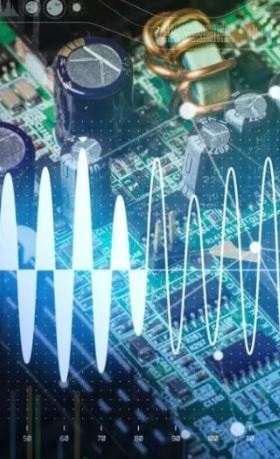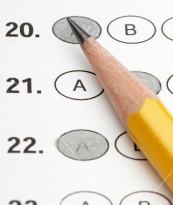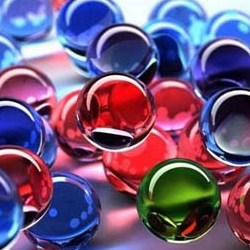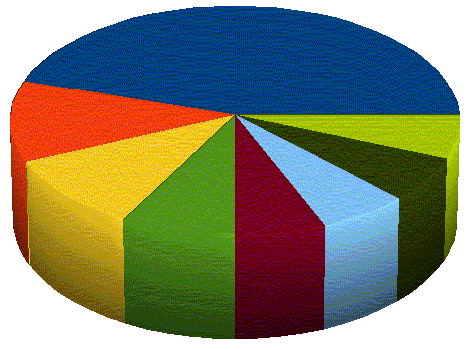
Menu:
Behrooz Parhami's ECE 10A/AL Course Page for Winter 2025

Foundations of Analog and Digital Circuits & Systems
Last updated: 2024 July 22
Note: This is the first in the 3-course series ECE ABC, with labs
Enrollment code: TBD
Prerequisite: Math 2AB or 3AB (see catalog)
Class meetings: TBD
Instructor: Professor Behrooz Parhami
Open office hours: TBD
Course announcements: Listed in reverse chronological order
Course calendar: Schedule of lectures and links to lecture slides
Homework assignments: TBD
Exams: TBD
Lab work: TBD
Policy on academic integrity: Please read very carefully
Grade stats: Grade range, mean, etc. for each activity
Miscellaneous information: Motivation, catalog entry, history
Course Announcements

2024/07/22: Welcome to the ECE 10A/AL course Web page for winter 2025. This is the first time I will be teaching this course and am now preparing for the challenge.
I will use the 2005 Morgan Kaufmann textbook, Foundations of Analog and Digital Electronic Circuits, by Anant Agarwal and Jeffrey H. Lang.
I will gradually update this page as I learn/decide how to present it. See you in 2025!
****** Nothing Beyond This Point Is Up to Date ******
Course Calendar

Course lectures have been scheduled as follows. PowerPoint presentations (up to 2+ MB), and equivalent PDF files, are updated periodically. Please note that any animation in PowerPoint presentations is lost in the PDF versions. Before downloading the slides, check the "last updated" date to make sure you have the latest files for 2018. This schedule will be followed strictly. You can refer to the Web page for ECE 1B for additional topics (mostly in computer engineering) presented in the same style.
Day & Date (Lecture slides, ppt + pdf, and ppt handout) Lecture title
W 10/03 (ppt, pdf, handout, last updated 2018/10/02) Predicting the Future: Puzzles
W 10/10 (ppt, pdf, handout, last updated 2018/10/02) Predicting the Future: Sci/Tech
W 10/17 (ppt, pdf, handout, last updated 2018/10/12) Recommender systems: Puzzles
W 10/24 (ppt, pdf, handout, last updated 2018/10/12) Recommender systems: Sci/Tech
W 10/31 (ppt, pdf, handout, last updated 2018/10/27) No lecture: Instructor at a conference
W 11/07 (ppt, pdf, handout, last updated 2018/10/27) 3D models from 2D images: Puzzles & Sci/Tech
W 11/14 (ppt, pdf, handout, last updated 2018/11/12) Computational geometry: Puzzles
W 11/21 (ppt, pdf, handout, last updated 2018/11/12) Computational geometry: Sci/Tech
W 11/28 (ppt, pdf, handout, last updated 2018/11/18) Maps and graphs: Puzzles
W 12/05 (ppt, pdf, handout, last updated 2018/11/18) Maps and graphs: Sci/Tech
Homework Assignments

-Turn in your solutions as a PDF file attached to an e-mail sent by the due date/time.
-Because solutions will be handed out on the due date, no extension can be granted.
-Include your name, course name, and assignment number at the top of the first page.
-If homework is handwritten and scanned, make sure that the PDF is clean and legible.
-Although some cooperation is permitted, direct copying will have severe consequences
Homework 1: Number systems, addition/subtraction (ch. 1-7, due W 2024/04/17, 12:00 noon)
Do the following problems from the textbook: 1.12, 2.16, 3.20, 4.11, 5.26 (defined below), 6.25, 7.6
[FYI, here is the statement of Problem 5.26 which was inadvertently left out.]
5.26 Full-adder built of majority elements Certain new atomic-level logic technologies allow compact, low-power realization of majority gates. Present the design a 1-bit full-adder with inputs a, b, c (carry-in) and outputs s (sum) and d (carry-out):
a. Using only 3-input majority gates and a minimal number of inverters.
b. Using only three gates: 3-input majority, 5-input majority, inverter.
Homework 2: Multioperand addition, multiplication (ch. 8-11, due W 2024/05/01, 12:00 noon)
Do the following problems from the textbook: 8.5, 8.31 (defined below), 9.4d, 9.20, 10.9, 11.12, 11.17
5.31 Three-input addition/subtraction Present the design of a 3-input unit that can compute any of the expressions x + y + z, x + y – z, x – y + z, and x – y – z, where x, y, and z are 2's-complement binary inputs.
Homework 3: Variations in multiplication, division (ch. 12-16, due W 2024/05/22, 12:00 noon)
Do the following problems from the textbook: 12.20, 12.25, 13.8, 13.12bc, 14.1ab, 16.17
Homework 4: Floating-point arithmetic, square-rooting (ch. 17-21, due W 2024/06/05, 12:00 noon)
Do the following problems from the textbook: 17.5, 17.7, 18.9, 18.15, 19.15, 20.2, 21.18
Sample Exams and Study Guide [Not applicable to spring 2024]

The following sample exams (from spring 2007 and 2008) are meant to indicate the types and levels of problems, rather than the coverage (which is outlined in the course calendar). Students are responsible for all sections and topics (in the textbook and class handouts) that are not explicitly excluded in the study guides that follow the sample exams, even if the material was not covered in class lectures.
Sample Midterm Exam (105 minutes)
Problem 1 [15 points] Defining concepts and terms. Define each of the following concepts/terms precisely and concisely within the space provided (about 1.5 inches per term) [3 points each]: Manchester carry chain; Multiplier recoding; ulp; Conditional-sum adder; Parallel prefix graph
Problem 2 [10 points] Number representation. Show that flipping (complementing) the sign bit of k-bit numbers in 2's-complement format results in biased representation and determine the bias amount that characterizes this new representation.
Problem 3 [20 points] Basic design concepts. Draw diagrams showing each of the following. No explanation is necessary; the diagrams should be self-explanatory.
a. How an ordinary binary adder can be augmented to perform addition or subtraction of 2's-complement numbers under the control of an add'/sub signal (0 means "add", 1 means "subtract").
b. How 2-bits-at-a-time or radix-4 sequential multiplication might be performed at high speed without Booth's recoding and without precomputing 3 times the multiplicand.
Problem 4 [15 points] Carry-skip addition.
a. Show that the optimal block width b in a fixed-block carry-skip adder is proportional to the square root of the word width k. [10 points]
b. Briefly discuss why carry-skip adders are of interest at all, given that faster logarithmic-time adders are available. [5 points]
Problem 5 [15 points] Multioperand addition. The following describes a multioperand addition process in tabular form:
0 0 8 8 8 8 8 8 8 8
0 2 6 6 6 6 6 6 6 4
0 4 4 4 4 4 4 4 3 2
1 3 3 3 3 3 3 3 2 1
2 2 2 2 2 2 2 2 1 1
a. Explain the process described by this table. [5 points]
b. In the hardware implementation implied by the table, what component types are used and how many of each? Be as precise as possible in specifying the components used. [10 points]
Problem 6 [25 points] Two's-complement multiplication.
a. Represent x = 3, y = −3, and z = 5 as 4-bit 2's-complement numbers. [5 points]
b. Using the right-shift algorithm, perform x times z, using the representations of part a, to get the 8-bit product p = 15. [10 points]
c. Using the left-shift algorithm, perform y times z, to get the 8-bit product p' = −15. [10 points]
Sample Final Exam (2.5 hours)
Do Problems 1-2, plus 5 of the remaining 6. If all optional problems are answered, the first 5 will be graded.
Problem 1 [15 points]
a. The standard 2-way carry operator has two pairs of inputs and a pair of outputs. Present a suitable generalization to an h-way operator with h pairs of inputs.
b. Name and justify one, and only one, advantage of each of the following dividers over the other two: high-radix, array, convergence.
c. Explain why square-rooting cannot be viewed as a special case of division, in the same way that squaring is a special case of multiplication.
Problem 2 [10 points] Problem 5.18c from the textbook.
Problem 3 [15 points] Problem 7.28 from the textbook.
Problem 4 [15 points] Problem 11.22 from the textbook.
Problem 5 [15 points] Problem 15.6 from the textbook.
Problem 6 [15 points] Problem 19.2 from the textbook.
Problem 7 [15 points] Problem 21.18 from the textbook.
Problem 8 [15 points] Problem 22.20abc from the textbook.
Midterm Exam Study Guide
The following textbook sections are excluded from the midterm exam: 3.4-3.6, 4.4-4.6, 6.3, 7.2, 10.5
Final Exam Study Guide
In addition to the midterm exclusions, the following textbook sections are excluded from the final exam covering Chapters 3-21: 15.4, 15.6, 19.4, 19.5, 19.6, 20.2, 21.4, 21.6
Lab work

TBD
Grade Statistics

Grades are in [F, A], unless otherwise noted..
HW1 grades: Range [B+, B+], Mean = 3.30, Median = B+
HW2 grades: Range [B, A–], Mean = 3.35, Median = B+
HW3 grades: Range [B+, A–], Mean = 3.50, Median = B+/A–
HW4 grades: Range [, ], Mean = 0.00, Median =
Overall HW grades (%): Range [00, 00], Mean = 00, Median =
Research paper grade: Range = [, ], Mean = 0.00, Median =
Course letter grades: Range = [, ], Mean = 0.00, Median =
Miscellaneous Information
Motivation: Whether they work in the industry or in academic research settings, scientists and engineers face many challenges in the discovery and advancement of new theories and in the quest to design complex structures and processes that are both reliable and usable. It is difficult to discuss these topics at the freshman level, given the lack of background in the requisite subjects. This seminar is intended to provide an introduction to day-to-day problems and research endeavors in science and technology via their connections to familiar mathematical and logical puzzles.
Catalog entry: INT 94TN. Puzzling Problems in Science and Technology. (1) PARHAMI. 1 hour/week.
Prerequisite: Open to UCSB freshmen from all disciplines.
Restrictions: Subject to campus rules for interdisciplinary freshman seminars.
Scientific research and technological development problems are puzzle-like in the sense of requiring insight and out-of-the-box thinking for their solution. Many such problems are actually related to popular math/logic puzzles in terms of the pertinent insights and solution methods. In this 1-unit seminar, several puzzles are introduced and linked to science/technology topics. Examples include "finding the next term in a series" (technology forecasting, program branch prediction), "detecing similarities and differences in images" (fingerprint matching, recommender systems), and "deducing 3D shapes from 2D images" (body imaging, architectural models).
History: This seminar came about as an extension of a 1-unit seminar, proposed and designed by Professor Parhami for computer engineering students (first offered in spring 2007 as ECE 1, later becoming ECE 1B). The main goal of both seminars is to expose students to challenging problems, faced by engineers and research scientists, in a motivating and entertaining way, while requiring a minimal background in math and science.
Fall 2016 offering of INT 94TN
Web page for ECE 1B